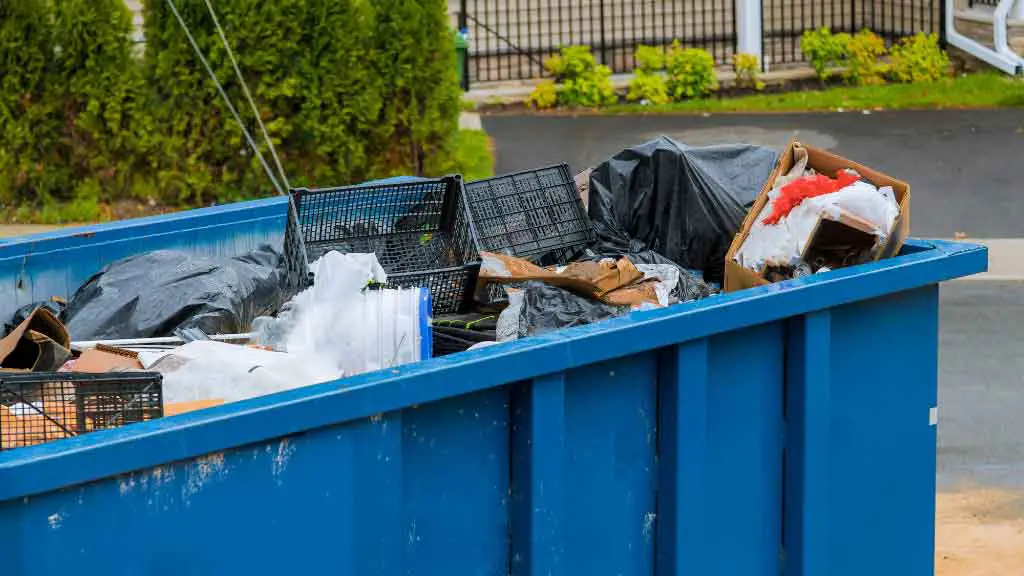So, here's the deal—dumpster diving is one of those activities that raises a ton of questions. Is it legal? Is it ethical? Is it even worth it? Well, buckle up because we’re about to dive deep into this trashy topic and uncover the answers you’ve been looking for. Whether you’re a seasoned dumpster diver or just curious about the legality of scavenging, this article’s got you covered.
Let’s face it, dumpster diving has gained popularity over the years, especially with people trying to live sustainably or simply looking for free stuff. But before you grab your gloves and headlamp, you gotta know the rules. Is dumpster diving illegal? That’s the million-dollar question we’re tackling today. Spoiler alert: it depends.
From legal loopholes to ethical considerations, we’ll break it all down for you. This isn’t just about finding treasure in someone else’s trash—it’s about knowing your rights and responsibilities. So, let’s get started!
Read also:Xxx Leak Video
Table of Contents
- What is Dumpster Diving?
- Is Dumpster Diving Illegal?
- Legal Considerations Around Dumpster Diving
- Ethical Questions Surrounding Dumpster Diving
- Popular Dumpster Diving Locations
- Safety Tips for Dumpster Divers
- Environmental Impact of Dumpster Diving
- Tips for Beginners in Dumpster Diving
- Common Mistakes to Avoid
- Conclusion: Is It Worth It?
What is Dumpster Diving?
Alright, first things first—what exactly is dumpster diving? Simply put, it’s the act of rummaging through trash bins or dumpsters in search of usable items. Some people do it out of necessity, others out of curiosity, and some even see it as a lifestyle choice. Think of it like urban treasure hunting, but instead of gold, you’re looking for perfectly good food, furniture, electronics, or anything else people might’ve tossed away.
Dumpster diving isn’t just about finding free stuff though. It’s also tied to sustainability and reducing waste. A lot of perfectly good items end up in landfills, and dumpster divers are here to rescue them. But hey, don’t let the term fool you—it’s not as glamorous as it sounds. There’s a lot more to it than just sticking your hand in a bin.
Why Do People Dumpster Dive?
People dumpster dive for all sorts of reasons. Some are looking to save money, while others want to reduce their environmental footprint. Here are a few common motivations:
- Economic Necessity: For some, dumpster diving is a way to make ends meet.
- Sustainability: Many divers are passionate about reducing waste and living a zero-waste lifestyle.
- Adventure: Let’s be honest—there’s a certain thrill in uncovering hidden treasures.
- Curiosity: Some people just want to see what they can find!
Is Dumpster Diving Illegal?
Now, let’s address the elephant in the room: is dumpster diving illegal? The short answer is—it depends. Laws vary depending on where you live, and what you’re doing while diving. In some places, dumpster diving is perfectly legal, while in others, it could land you in hot water. Generally speaking, dumpster diving isn’t illegal unless you’re trespassing or violating private property laws.
For instance, if a dumpster is on private property and clearly marked as off-limits, diving into it might be considered trespassing. On the other hand, if the dumpster is in a public space or doesn’t have any restrictions, you’re probably in the clear. Always check local regulations to avoid any legal trouble.
Legal Loopholes to Watch Out For
There are a few legal loopholes you should be aware of if you’re planning to dive. For example:
Read also:Parvati Shallow Net Worth
- Trespassing: Make sure the dumpster isn’t on private property or behind a fence.
- Littering: Don’t leave a mess behind—clean up after yourself!
- Theft: If the items are still owned by someone, taking them could be considered theft.
Legal Considerations Around Dumpster Diving
When it comes to dumpster diving, understanding the legal landscape is crucial. While it’s not inherently illegal, there are certain factors that can turn a harmless activity into a legal nightmare. For instance, some businesses might consider dumpster diving a violation of their privacy, especially if they’re discarding sensitive information like documents or electronics.
According to a report by the National Waste & Recycling Association, dumpster diving is technically legal in most places, but that doesn’t mean you’re completely in the clear. Always check local laws and ordinances to ensure you’re not crossing any boundaries.
What Happens If You Get Caught?
If you get caught dumpster diving, the consequences can vary. In some cases, you might receive a warning, while in others, you could face fines or even arrest. It all depends on the circumstances and the local laws. That’s why it’s so important to do your research beforehand.
Ethical Questions Surrounding Dumpster Diving
While dumpster diving might be legal in certain situations, there are still ethical considerations to keep in mind. For example, are you taking items that someone else might need more than you? Or are you contributing to a culture of waste rather than reducing it?
Some argue that dumpster diving is a form of activism, highlighting the excessive waste produced by society. Others see it as exploiting the generosity of businesses or individuals who donate their goods. Whatever your perspective, it’s worth reflecting on the ethical implications of your actions.
How to Dive Ethically
Here are a few tips for diving ethically:
- Respect Private Property: Don’t trespass or cause damage to the area.
- Be Mindful of Others: Leave enough for other divers or those in need.
- Clean Up After Yourself: Don’t leave a mess behind—it reflects poorly on the entire community.
Popular Dumpster Diving Locations
So, where do you start your dumpster diving adventure? Well, there are a few hotspots that tend to yield the best results. Grocery stores, bakeries, and restaurants are often great places to find food that’s still perfectly edible. Furniture stores and electronics shops can be goldmines for household items. And don’t forget about construction sites—sometimes they toss away perfectly good materials.
Of course, not all locations are created equal. Some places might have strict rules about diving, while others might welcome it. Always do your homework and respect the rules of the area.
Top Locations to Check Out
- Grocery Stores: Look for expired or near-expired items that are still safe to eat.
- Bakeries: Fresh bread and pastries are often discarded at the end of the day.
- Furniture Stores: Keep an eye out for slightly damaged items that can be easily fixed.
Safety Tips for Dumpster Divers
Diving into a dumpster might sound fun, but safety should always be your top priority. There are all sorts of hazards lurking in those bins, from sharp objects to hazardous materials. Here are a few safety tips to keep in mind:
- Wear Protective Gear: Gloves, boots, and even a mask can help protect you from germs and sharp objects.
- Be Aware of Your Surroundings: Watch out for traffic, animals, and other potential dangers.
- Know What to Avoid: Stay away from items that might be contaminated or hazardous.
Environmental Impact of Dumpster Diving
One of the biggest arguments in favor of dumpster diving is its potential environmental impact. By rescuing usable items from the landfill, divers help reduce waste and promote sustainability. According to the Environmental Protection Agency, Americans generate about 292 million tons of waste each year. That’s a lot of trash!
Dumpster diving can play a small but significant role in reducing that number. By salvaging items that would otherwise end up in a landfill, divers contribute to a more sustainable future. Plus, they inspire others to rethink their consumption habits.
How You Can Make a Difference
Here’s how you can make a difference through dumpster diving:
- Spread Awareness: Share your experiences and educate others about the benefits of diving.
- Reuse and Recycle: Find creative ways to repurpose the items you find.
- Support Local Initiatives: Get involved with organizations working to reduce waste.
Tips for Beginners in Dumpster Diving
If you’re new to dumpster diving, it’s natural to feel a little nervous. But don’t worry—we’ve got some tips to help you get started:
- Start Small: Begin with low-risk locations like grocery stores or bakeries.
- Do Your Research: Learn about local laws and regulations before diving.
- Bring the Right Tools: Gloves, a flashlight, and a bag for your finds are essential.
Common Mistakes to Avoid
Even the most seasoned divers make mistakes from time to time. Here are a few common ones to watch out for:
- Trespassing: Don’t dive into dumpsters on private property without permission.
- Leaving a Mess: Always clean up after yourself—it’s the right thing to do.
- Overlooking Safety: Protect yourself from hazards like sharp objects and hazardous materials.
Conclusion: Is It Worth It?
So, is dumpster diving illegal? The answer is—it depends. While it’s not inherently illegal, there are plenty of factors to consider, from legal regulations to ethical considerations. But if you approach it responsibly and respectfully, dumpster diving can be a rewarding and sustainable way to live.
Before you head out on your next dive, remember to do your research, respect the rules, and prioritize safety. And most importantly, have fun! Who knows what treasures you might uncover? If you’ve enjoyed this article, feel free to share it with your friends or leave a comment below. Happy diving!
References:
- National Waste & Recycling Association
- Environmental Protection Agency
- Zero Waste International Alliance


